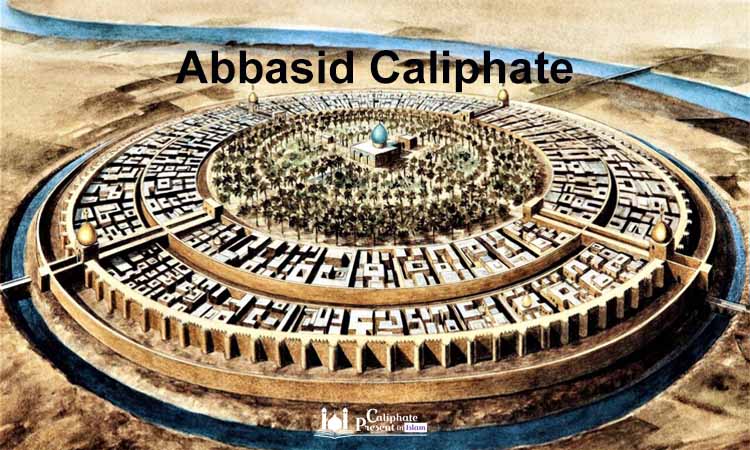Who is the first caliph of Islam?
Prophet Muhammad’s (S.A.W) close friend and Counsellor Hazrat Abu Bakr Siddique – The First Caliph of Islam (R.A) was born in 573 and passed away on 13 Hijri, August 23, 634. For his confirmation of the Mi’raj, the Prophet’s night journey and ascent to the heavens, the Prophet gave him the title al-Siddique (“the righteous one”).
This nobleman belonged to the Banu Taym. He was a monotheist at first who opposed idolatry in the Age of Darkness. He used to release slaves as famous dealer. After converting to Islam in 610, the former participated in practically all of the conflicts that the Islamic prophet fought in. He generously donated his resources to further Muhammad’s cause, and he traveled to Medina with Muhammad (S.A.W). His invitations led to the conversion of several notable companions (Sahaba) to Islam. He remained Muhammad’s (S.A.W) closest counsel, participating in practically all of his military engagements. In Muhammad’s (S.A.W) absence, he oversaw the prayers and journeys.
Before Islam
Hazrat Abu Bakr was born into a wealthy family of the Banu Taym tribe, which was part of the Quraysh tribal confederacy. His father’s name was Uthman, and his mother’s name was Salma bint Sakhar, although she was given the laqab of Umm ul-Khair. He was the son of Uthman and Salma bint Sakhar. Like other Arab children of the day, he was raised by Ahl-i-Ba’eer (called people of the Camel). He loved playing with camel calves and goats as a child. Due to this, he was called Abu Bakr, which means “father of the camels and calves.”
Hazrat Abu Bakr was literate and grew up to have a passion for poetry, just as many of the other children came from wealthy and powerful families in Mecca. He liked to go to the yearly fair in Ukaz and take part in the poetical seminars that were held there. He had a very good recall and was quite knowledgeable about the lineage of the Arab tribes, as well as their history and the politics of their ancestors.
When he was young, his father led him to the Kaaba and told him to pray in front of the sculptures. He was left alone after his father departed to handle other business. He asked a statue he thought to be God for good garments. The idol was emotionless. Then he addressed another idol: “Oh God, feed me! I’m famished! “less The idol was cold. Young Abu Bakr lost patience. He pointed the stone at an idol and said, “If you’re a god, protect yourself.” He threw a stone at the idol. After hitting the idol with the stone, Abu Bakr left the Kaaba. Before converting to Islam, Abu Bakr was a hanif and never worshipped idols.
Read More...
Acceptance Of Islam
When Hazrat Abu Bakr returned home from a business trip to Yemen, his associates informed him that while he was gone, Muhammad ﷺ had announced a new religion and proclaimed himself to be the messenger of God.
Following their conversion to Islam, the companions of the Prophet Muhammad ﷺ were subjected to a variety of tests and challenges. Slaves, on the other hand, frequently suffered the most severe forms of oppression at the hands of their proprietors. The generosity of Hazrat Abu Bakr (RA) can be seen in the fact that he paid 40,000 Dinars out of his pocket to help liberate 8 slaves (4 males and 4 females). Only well of these slaves was Hazrat Bilal (RA), who had the honour of being the Mu’azzin (responsible for calling people to prayer in the mosque) of Prophet Muhammad. Hazrat Abu Bakr (R.A) paid for their freedom
After Muhammad’s demise
The very first Hajj in Islamic history took place in the ninth year of Hijrah. As Muhammad, was too busy in Madinah to oversee the Hajj, he appointed Hazrat Abu Bakr (R.A) as his representative to do so. In Madinah, Muhammad (S.A.W) led the prayers himself but during his final illness, the Prophet could no longer lead the prayers since he was too weak to walk to the mosque, so he had to appoint someone to take his place. Hazrat Abu Bakr was likewise honoured to have been picked by the Prophet for such a mission.
Thus, throughout Muhammad’s (S.A.W) lifetime, Abu Bakr achieved the highest status in Islam. While Abu Bakr was away suddenly, the Companions nominated ‘Umar to conduct the prayers on his behalf. When Muhammad (S.A.W) noticed the difference in voice, he observed, “This is certainly not Abu Bakr’s voice; nobody other than he should lead prayers; he is the fittest man for this responsibility.”
When the tragedy of the Prophet’s death broke out, many Muslims were surprised and puzzled. ‘Umar was overwhelmed by emotion and grabbed his sword, declaring, “If anybody says the Prophet of Allah is dead, I will strike off his skull.”
Muslims remained in this state until Hazrat Abu Bakr (R.A) returned and delivered his powerful quote: “O People! If anyone amongst you worshipped Muhammad S.A.W, convince him that he is no longer alive. All who worshipped Allah, on the other hand, informed them that He remains and will never die. Let us all recall the verses that are found in the Qur’an. It says:
“Muhammad (S.A.W) is only a messenger: many were the messenger that passed away before him. If he died or were slain, will ye then turn back on your heels? If any did turn back on his heels, not the least harm will he do to Allah; but Allah (on the other hand) will swiftly reward those who (serve Him) with gratitude.” (آل عمران: 144)
The Successor of the Muhammad S.A.W
After adjusting to the tragic news of Muhammad’s (S.A.W) death, Muslims understood they needed someone to fill the leadership position amongst them.
Then Hazrat Abu Bakr (R.A) requested the people to vote for ‘Umar ibn al-Khattab or Abu ‘Ubaydah ibn al-Jarrah. Both men exclaimed and asked Abu Bakar to be Muhammad’s (S.A.W) successor. Given all of these abilities and being the strongest companion of Muhammad (S.A.W) all pledge their allegiance to Abu Bakr.
Reign (632 – 634)
During Hazrat Abu Bakr’s (R.A) rule, which lasted for 27 months, he was successful in putting down rebellions led by Arab tribes located all across the Arabian Peninsula by means of the Ridda Wars. In the final months of his reign, he dispatched Khalid ibn al-Walid on military campaigns of conquest against the Sassanid Empire in Mesopotamia and the Byzantine Empire in Syria. This would be the first step in a historical chain of events (which would subsequently be followed by Umar and Uthman ibn Affan) that would, in a matter of a few decades at least, result in the establishment of one of the greatest empires in the world’s history. Even though he had minimal time to devote to the management of state issues during his reign as caliph, the country’s situation remained relatively unchanged. As a result of the guidance offered by Umar and Abu Ubaidah ibn al-Jarrah, he consented to take a wage from the national treasury rather than continue his duties in the clothing trade.
The Ridda Wars
After assuming the role of the first caliph of Muslims, Abu Bakr (R.A) was faced with a slew of challenges originating from various regions of the realm. The most notable of these challenges were tax rebellions and insurgencies from new claimants of Prophet-hood with their own troops. In spite of these difficulties, he took it upon himself to begin the campaign against the Byzantine Empire that had been begun by Mohammed during his life and was placed on hold in his final days. This voyage had been started by Mohammed.
Compilation of Quran
Aside from his efforts to stabilize the condition, one among his major contributions to Islam is the start of the compilation process of the Quran in its present form on the recommendation of Hazrat Umar (RA), because, before that, verses of the Quran have been spread across leather ancient scrolls and companions’ hearts. Many companions served as writers in the presence of Mohammed to scribble down Quranic verses.
A Second Caliph was chosen.
Hazrat Abu Bakr (R.A) fell ill and was unable to recover. He felt compelled to name his successor to ensure that the matter would not cause division among Muslims after his death. After conferring with companions, he proposed Hazrat Umar (R.A) as the second caliph to succeed him. His funeral was led by Hazrat Umar (R.A), and he was buried beside to Muhammad’s (S.A.W).
Read Less












